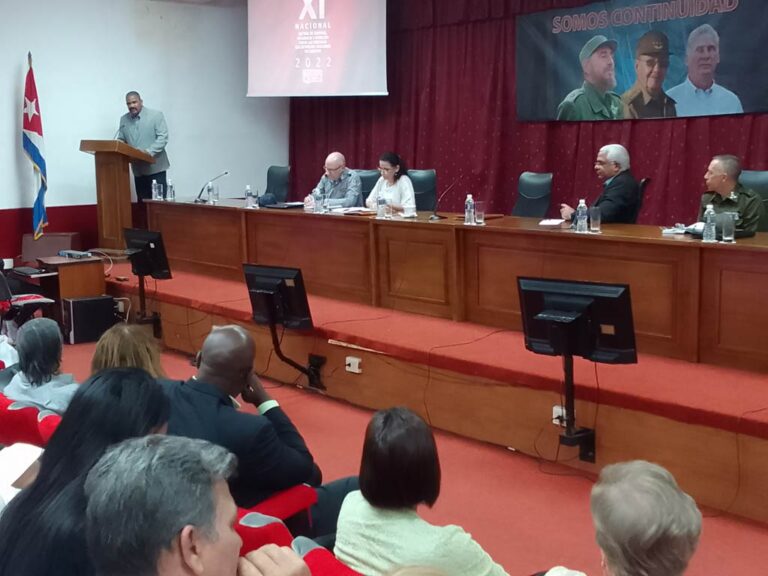At the inauguration of the 11th National Workshop on the system of control, influence, and attention to people who extinguish sanctions in freedom, being held in Havana, Remigio explained that various agencies, organizations, and communities work together for the reincorporation of those sanctioned into society.
The lawyer informed that in late October 2022, around 40,000 people were tried, and 56.5 percent of them were released from prisons.
The People’s Provincial Courts with the highest numbers are those in Havana, Santiago de Cuba, Holguín, Las Tunas, and Camagüey.
For her part, People’s Supreme Court Vice President Marisela Sosa explained that the Constitution of the Republic, approved in 2019, recognizes the State’s will to favor, in its prison policy, the social reintegration of people deprived of freedom and those who serve other kinds of sentences.
Cuba’s judicial reform, she pointed out, extends the guarantees of those sentenced in the field of employment, and study, as well as their rights and duties that extinguish in conditions of freedom.
She stressed that the execution of sanctions in Cuba is governed by the principles of legality, humanism, equality, the right to defense, judicial protection and access to justice.
Sosa pointed out that new alternative sanctions such as home imprisonment and services for the benefit of the community were incorporated.
Likewise, the coordinating role of the court was strengthened and its link with the local bodies of the People’s Power (government), prevention and social assistance groups, among other institutions.
jg/ro/mks









